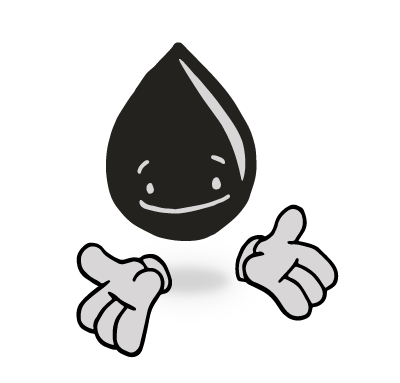12
Types of car filters
Air Filter
An air filter is responsible for the filtration of air in petrol and diesel cars as it enters the engine’s inlet manifold. Most cars only have one air filter, although cars with two-cylinder banks, such as V6 and V8s, can have two. An air filter is often confused with the pollen or cabin filter, which enters the cabin of the car, and which we’ll discuss later on. Air that enters the engine must be free of large particles- think insects, leaves, bugs, small birds. Dirty filters reduce air flow to the engine, making it work harder to get the same volume of air, leading to increased fuel consumption and decreased performance. If this happens for a long time more obvious issues such as stuttering, misfiring or inability to idle may happen. New filters are close to white, old ones are very grey and discoloured. Even if no symptoms, replace. You can extend the life of your filter by blowing through it with compressed air, although it is hardly worth the effort because they are not expensive.
Fuel Filter
This filter protects the fuel injection system from debris that can accumulate in the bottom of the fuel tank or fuel lines. Some fuel filters also separate out water, as water can be present in fuel and can lead to the damage of diesel pumps and fuel injectors. A fuel filter can be really different in diesel cars than they are with petrol cars, so make sure to read carefully! Most petrol cars come with fuel filters that are fit for life, so they needn’t be replaced at all. They’re usually located inside the fuel tank or on the fuel line underneath the car. In diesel cars, the filter is usually found in the engine bay, and is thus more accessible. It is also recommended that the fuel filter is regularly changed with every servicing, as filters in diesel engines are more likely to collect contaminants, more than likely due to the less refined nature of diesel. Make sure to bleed the fuel system after replacing the filter.
Oil Filter
This is the most important filter in your car, as it filters oil that circulates around your engine. Dust, dirt and metal particles are often present in oil prior to its circulation around your engine, and the oil filter must effective remove these so they can reach all areas of your engine. Change the oil and filter- which must be done together- in accordance to your manufacturer’s guidelines, which you can find in your manual. These guidelines are minimum requirements, however. If you use your car for short journeys or in heavily congested urban areas, it is recommended that you change your oil more frequently. You should also make sure that if you use long-life oil, you select a filter that has the same longevity. It should be noted that there are two types of oil filter, a spin-on filter, which has an aluminum outer skin, and a cartridge-type, which does not. These are not interchangeable, which many people think they are. Pay close attention to rubber seal size and position, checking which is appropriate for your vehicle in your owner’s manual.
Pollen Filter
This new invention has no effect on your car’s longevity, but could affect yours. A pollen filter removes pollen and other contaminants as they enter the cabin of your car. This can help alleviate symptoms of hay fever (hoorah, bearable spring seasons at last!) as well as fumes and dust from industrial activity and traffic. It’s a good investment, particularly if you spend a lot of time in your car or drive in urban or industrial areas.
When Should I Change My Filters?
First and foremost, make sure you consult your owner’s manual when it comes to deciding when to change your filters. Your manual will include recommendations from your car manufacturer about when you should replace your filters (or if it is even necessary, as in the case of the fuel filter). However, the contents of the manual are recommendations, and as such, you can change your filters more or less often as dependent on several factors, including gas mileage, engine trouble and, of course, a visual inspection of your filters.
If you have high gas mileage…you’ll want to change your air filter. Dirty air filters diminish the efficiency of fuel, meaning that you’ll consume more petrol and see a spike in your fuel costs.
If your engine is misfiring, or doesn’t start easily…you may have a dirty air filter, as the flow of air to the engine is impeded. This might cause an overly rich air-fuel blend, which can pollute your spark plugs and cause your engine to misfire, or even miss completely. Ouch.
If you hear unusual engine sounds…usually, a car that is in good condition hums smoothly when it is on, but unmoving. If you hear vibrating, or a coughing or slipping sound, the rough idling could be from a clogged air filter (or a damaged spark plug, which we’ll discuss in another post!)
If the check engine light is on…cars are pretty cool and combine thousands of gallons of air with one gallon of petrol to power your car. Without adequate air supply, deposits may accumulate in the engine, which can trigger your service light. Check your air filter to make sure that isn’t the element that’s causing the light to come on.
If your filters appear dirty upon visual inspection…change them! Make sure to check your filters in daylight or with a flashlight, as pollen and dust can be tricky and not easily visible.
If you experience reduced horsepower…if you notice that your car does not respond as quickly when you press the accelerator, or there are jerking movements, you may need to change the air filter as it’s a sign that the engine is not receiving the air it needs to perform well.
If you see black smoke or flames exiting your exhaust value…it isn’t as cool as riding a dragon, so check this on the double. Insufficient air supply can cause fuel that is not burning properly to burn and exit the car through the exhaust. Popping and flames means the fuel is igniting in the pipe, which contrary to people watching you drive by, isn’t cool and means you need to change your air filter. Immediately.
If you smell petrol…there is not enough oxygen entering the carburetor or fuel injection system when you start your car, and the excess fuel is exiting through the exhaust pipe. Change the air filter.
Now you’ll be able to identify what filters are in your car, and when they need changing, which will save you some of your hard-earned cash (and be a super impressive party trick!).
This is where Where’s My Dipstick comes in.
Whether you’re looking for general information, or are a little more advanced, you’ll have a one-stop shop at your fingertips so you can take matters into your own hands – and get comfortable under the bonnet.






